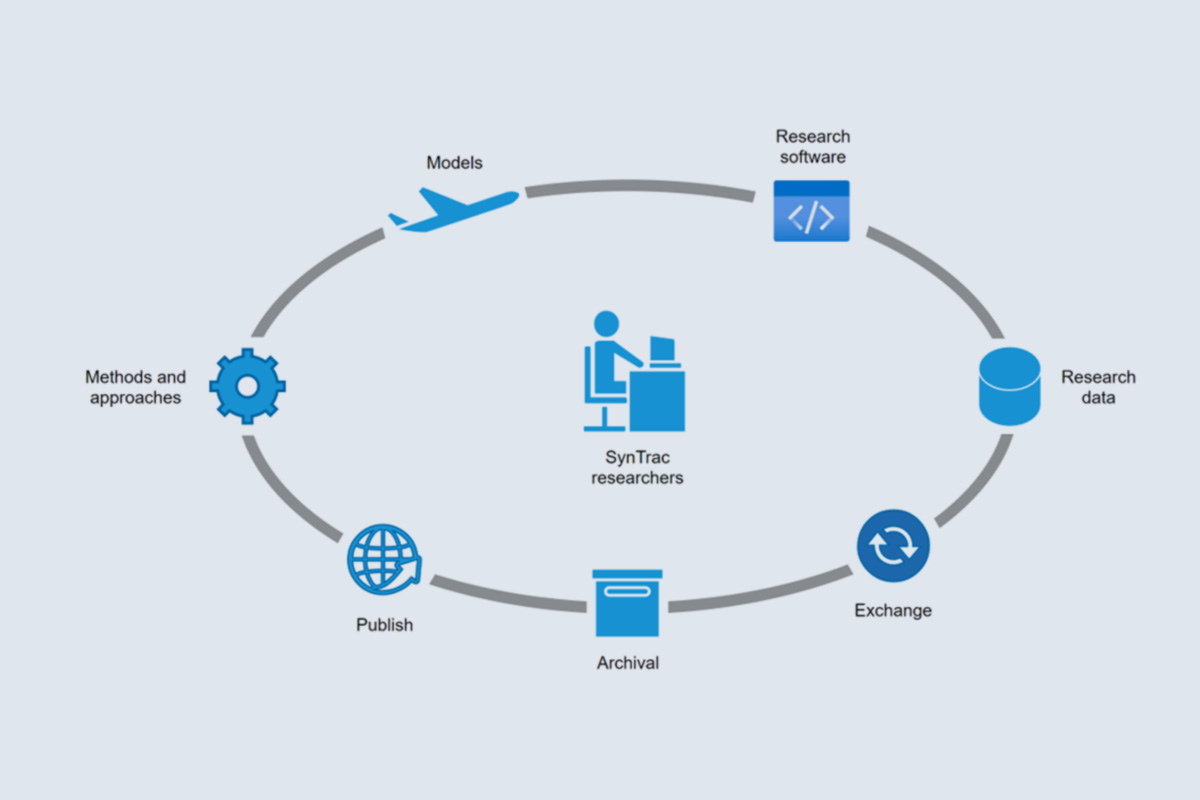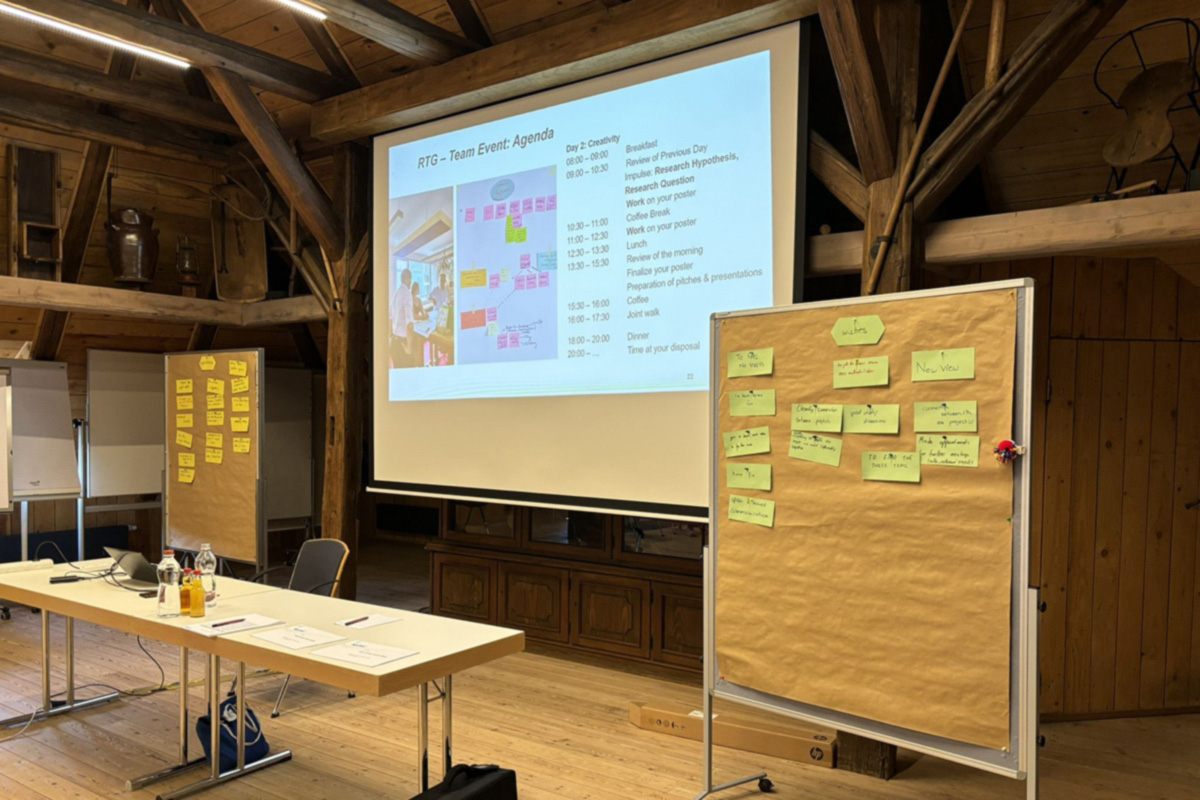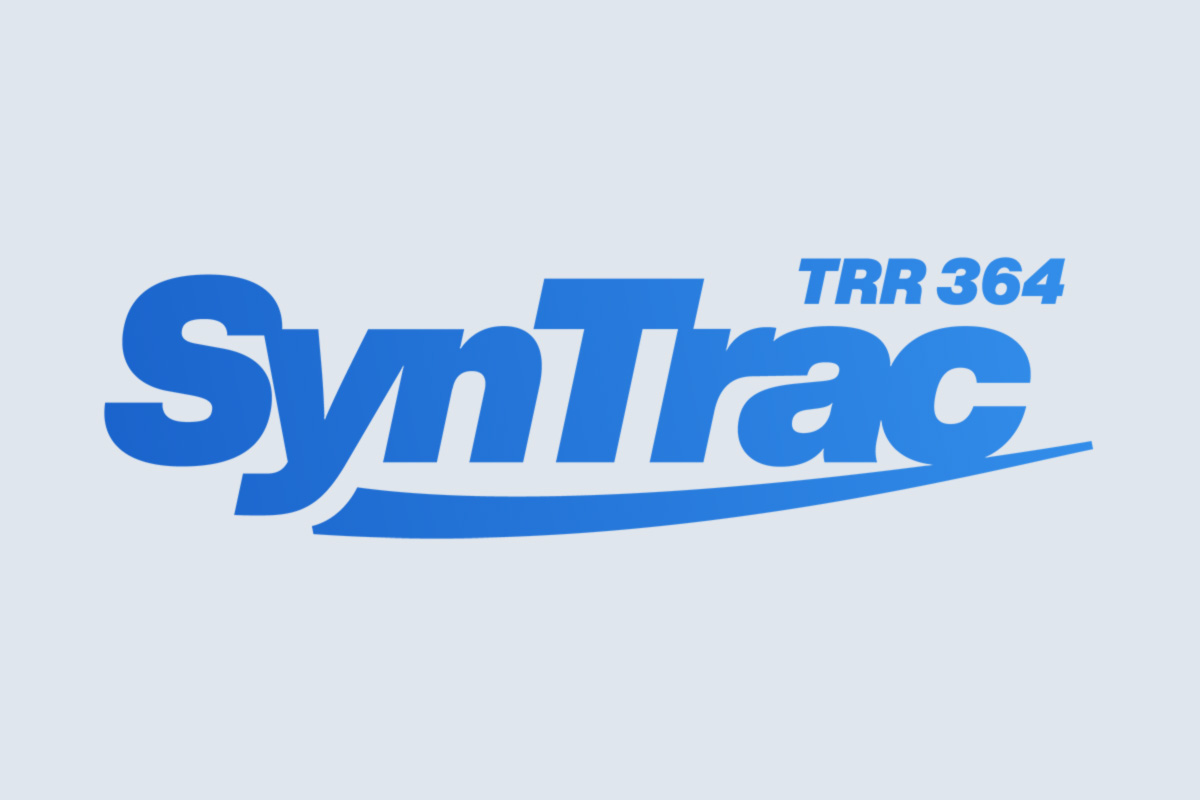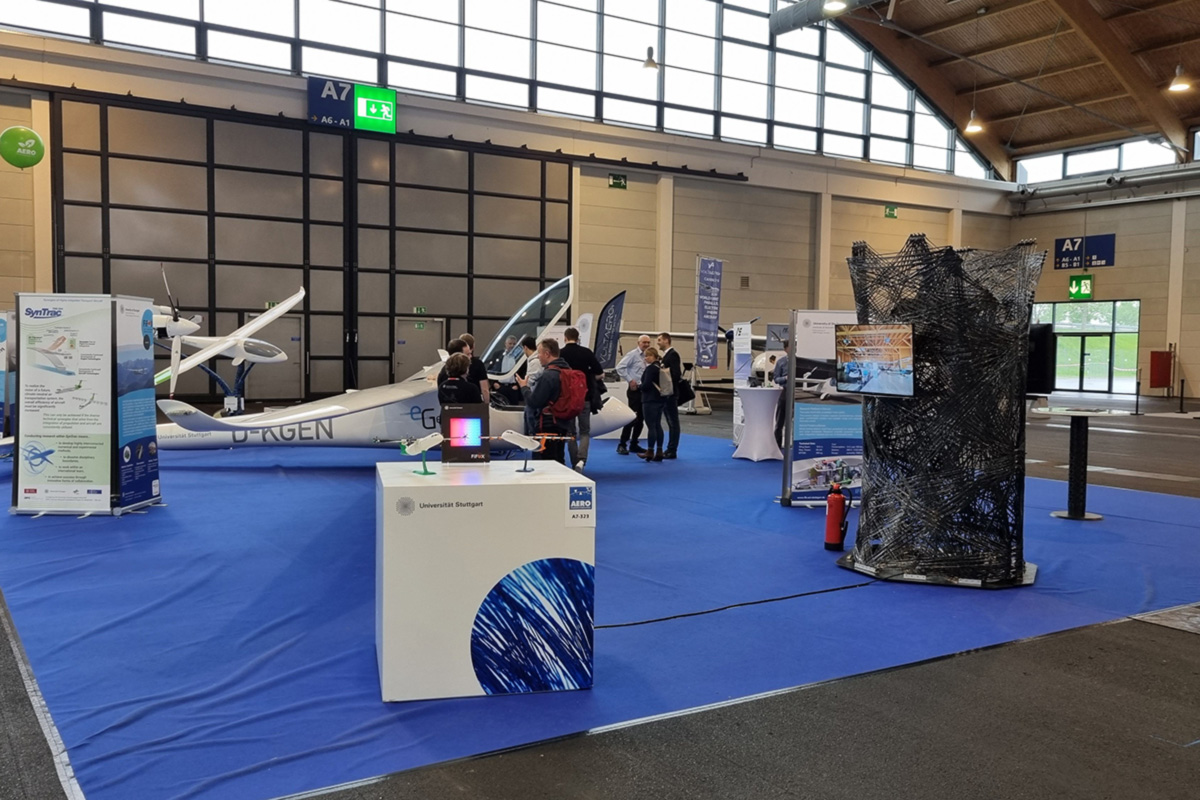INF: Management of Research Data and Sustainability of Research Software Development
The INF project is dedicated to ensure that the a) research data, b) research software and c) models originating from SynTrac follow the FAIR guiding principles requiring them to be Findable, Accessible, Interoperable and Reusable. In this way, the INF project supports good research practice by acknowledging that the management and long-term archiving of research data is closely linked to the sustainability of research software.
Motivation
The projects of SynTrac are expected to produce several hundred terabytes of interrelated research data distributed across all participating sites. Various PRs of SynTrac use their in-house research software and commercial tools to process and produce these data within a complex simulation chain during the project collaboration. As a result, one of the main goals of the INF project is to preserve data along with the deployed software with equal importance to enable efficient management and sustainability of both data and used software.
Objective
- Establish policies, infrastructure and workflows to enable smoother exchange, archival and publication of SynTrac related data and software
- Environment to handle highly evolving “hot” data in SynTrac timeline enabling efficient and sustainable collaboration
- Enabling research data to be supplied with the used research software by means of metadata standards
- Train and support SynTrac researchers to adopt approaches from:
◦ Guiding principles “FAIR – Findability, Accessibility, Interoperability, and Reuse”
◦ DFG project “SURESOFT”
Approach
The project begins with Requirement Analysis, which involves reviewing the codes and development routines against SURESOFT approaches for sustainable software, FAIR principles, and institutional policies. The results will inform later stages, such as training.
Following this, Policies and a Management Plan are established. A combined research data and research software policy will be created based on guidelines from TU Braunschweig and the University of Stuttgart, defining categories such as “hot” and “cold” data.
Next, Training, Consulting, and Support are provided to all researchers based on the established policies and management plan. Training will occur as part of specific courses within the iRTG project.
The project also includes defining a Metadata Standard and Metadata Management. This involves working groups representing all research areas and disciplines.
Additionally, Automated and Streamlined Workflows for Exchange and Publication are identified, with suitable tools chosen to automate data and software preparation based on the metadata scheme proposed.
Lastly, Support Services and Evaluation are provided. Requirements regarding digital workflows will be evaluated and formalized as part of continuous support for researchers.
Role in SynTrac










